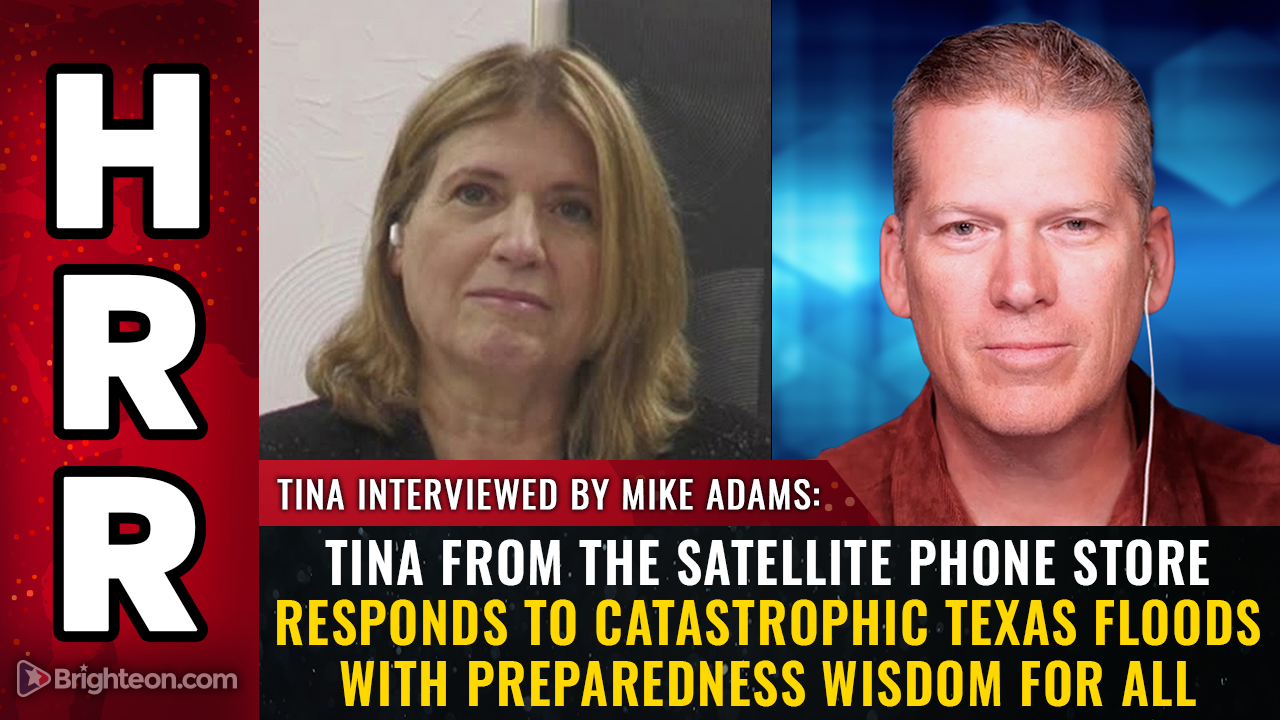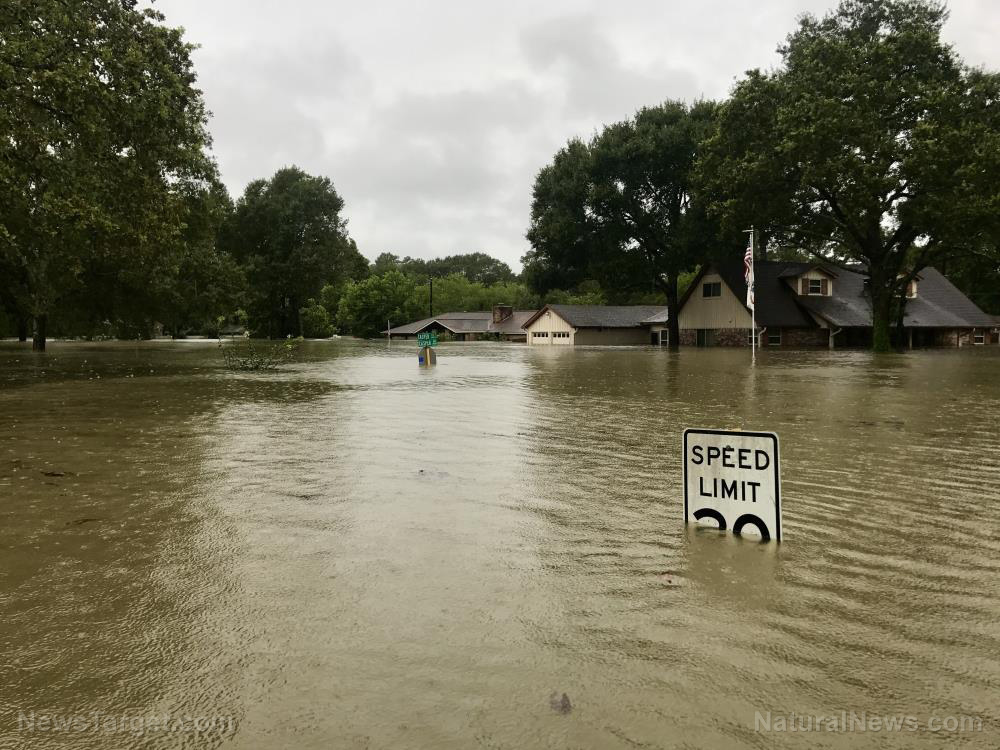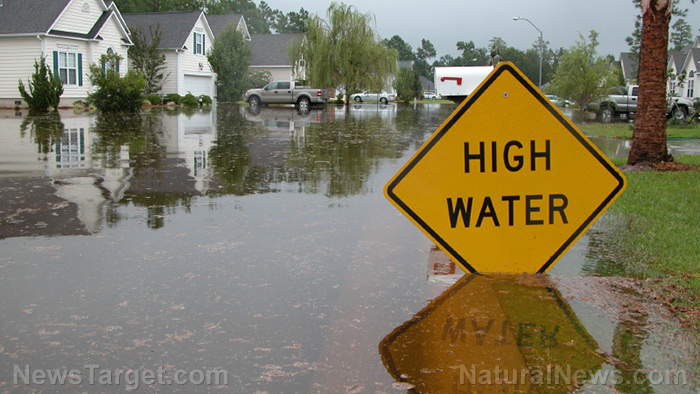 Parler
Parler Gab
Gab
- Survival isn’t just about having the right gear; it’s about mental resilience. People who stay determined often overcome impossible odds, while those who give in to fear or despair fail, even with resources.
- Fear-driven preppers stockpile supplies but panic during crises, making poor decisions. Mindset-driven preppers stay calm, adapt and take action, increasing their chances of survival.
- To develop a survival mindset, stay positive. Build confidence through survival and prepping skills. Embrace adaptability.
- Strengthen mental resilience by training under pressure and practicing discomfort. Run emergency drills to simulate real crises. Meditate to stay calm and make better decisions in chaos.
- A survival mindset also helps improve everyday life. It reduces anxiety and panic in high-stress situations. Gear and skills are important, but the strongest survival tool is your survival mindset.
Why mindset matters more than gear
Military survival manuals all emphasize the same lesson: Mental resilience is the foundation of survival. Soldiers are trained to maintain focus, adapt to chaos and push through exhaustion because the will to live often determines who makes it home. This principle isn’t limited to combat. Doctors see it in emergency rooms every day. Patients with life-threatening injuries, like gunshot wounds or severe illnesses, often defy medical odds based purely on their mindset. Those who refuse to give up frequently recover, while those who resign themselves to death may not survive, even if their injuries are treatable. (Related: Prepping 101: Tips to help you start your prepping journey.) The same applies when disasters strike. When society collapses, those who panic, freeze or obsess over what they don’t have are far more likely to fail. Meanwhile, survivors with a determined, solution-focused attitude find ways to endure, even with limited resources.Fear vs. preparedness
Not all preppers have the right mindset. Some prepare out of fear, obsessing over worst-case scenarios without developing the mental toughness to face them. They may stockpile supplies but become paralyzed by anxiety, unable to act decisively when crisis hits. Others prepare out of responsibility because they see survival as a challenge to overcome, not a doom to dread. This key difference shapes their actions: Fear-driven preppers hesitate, second-guess and fixate on problems, while mindset-driven preppers assess, adapt and take action. The latter group doesn’t just survive, they thrive under pressure because they’ve trained their minds as much as their skills.How to build an unshakable survival mindset
The good news? A survival mindset can be learned. Here’s how to cultivate one:Train yourself to stay positive
Negativity is a survival killer. In a crisis, fear and despair cloud judgment, leading to poor decisions. To counter this, reframe challenges as opportunities. Instead of thinking, "I’ll never make it," ask, "What’s the first step I can take?" Practice gratitude. Even in tough times, focusing on small wins, like having shelter and food, keeps morale high. Surround yourself with resilient people. Positivity is contagious, but so is negativity. Choose your tribe wisely.Build confidence through skills
Knowledge eliminates fear. The more survival skills you master, the more confident you become. Start with these basic survival skills:- Firestarting (matches, lighters, ferro rods, friction methods)
- First aid (stopping bleeding, treating infections, splinting fractures)
- Water purification (filters, boiling, chemical treatment)
- Navigation (map reading, compass use, natural landmarks)
Embrace adaptability
Rigid plans fail, but survivors improvise. Train yourself to:- Think outside the box. Can’t start a fire? Use a battery and steel wool. No bandages? Improvise with a clean cloth.
- Stay flexible. If Plan A fails, move to Plan B without wasting time on frustration.
- Learn from mistakes. Every failure is a lesson, so analyze, adjust and keep going.
Strengthen mental resilience
Military survival training includes stress inoculation, which involves exposing trainees to controlled hardships to build toughness. You can do the same as you prepare for emergencies:- Practice discomfort. Go without power for a weekend. Sleep outside in cold weather. Fast for 24 hours.
- Simulate emergencies. Run drills (for blackouts, evacuations or medical scenarios) to train under pressure.
- Meditate or practice mindfulness. Calm minds make better decisions in chaos.
Focus on what you can control
Disasters breed chaos, but your reaction is always within your control. Instead of asking "Why is this happening to me?" which comes from a victim mindset, ask "What can I do right now?" and focus on developing a survivor mindset. This shift keeps you moving forward, not wallowing in fear.The benefits of a survival mindset
A strong mindset doesn’t just help in disasters, it also improves everyday life. By training yourself to stay calm, adaptable and solution-focused, you’ll:- Reduce anxiety (panic is the enemy of survival)
- Make better decisions under pressure (logic beats emotion in crises)
- Bounce back faster from setbacks (resilience can help with your long-term survival)
- Inspire others (strong leaders emerge in chaos)
More related stories:
How societal resilience and strategic alliances can ensure your survival. Top 5 prepping myths debunked. No power? No problem! How portable power stations can keep you running after SHTF. Essential survival skills: The importance of water treatment methods for survival. Sources include: Survivopedia.com SurvivalStoic.com DesertIslandSurvival.com Brighteon.comTexas flood rescue efforts intensify as satellite phones and faraday bags prove critical
By Finn Heartley // Share
“Foods That Heal” by Bernard Jensen: A nutritional guide to wellness
By Belle Carter // Share
Devastation in Central Texas: Camp Mystic tragedy unfolds amid flash floods
By Belle Carter // Share
Governments continue to obscure COVID-19 vaccine data amid rising concerns over excess deaths
By patricklewis // Share
Tech giant Microsoft backs EXTINCTION with its support of carbon capture programs
By ramontomeydw // Share
Germany to resume arms exports to Israel despite repeated ceasefire violations
By isabelle // Share










